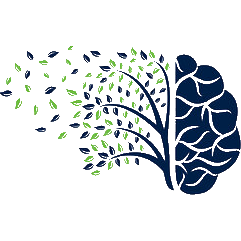Anorexia Nervosa
Anorexia nervosa is an eating disorder characterized by not eating enough and impacts all areas of a person’s life. A person affected by anorexia nervosa, may have a low body weight and a distorted body image. They also may have an intense fear of gaining weight and often use extreme
measures to control their weight and shape.
Learn more: Warning Signs of Anorexia Nervosa
Bulimia Nervosa
Bulimia nervosa is an eating disorder characterized by binge eating followed by purging or another method designed to prevent weight gain such as the use of laxatives, excessive exercises, and fasting. Due to guilt and shame associated with bulimia nervosa, people affected by this
disorder will go to great lengths to hide their behaviors.
Learn more: Signs and Symptoms of Bulimia Nervosa
Binge-Eating Disorder
Binge eating is an eating disorder characterized by consuming large amounts of food even when the person isn’t hungry. Typically, the person feels out of control as well as a sense of shame and guilt over their binge eating. Unlike people with bulimia nervosa, they do not try to
purge the food after it is consumed.
Learn more: What Is Binge Eating?
Rumination Disorder
Rumination disorder is an eating disorder that involves bringing previously chewed or previously swallowed food back up in order to spit it out or re-swallow it. These behaviors are often done in secret because of a fear of what people will think.
Learn more: What Is Rumination Disorder?
Avoidant/Restrictive Food Intake Disorder
ARFID is an eating disorder in which the person affected has a strong preference for a narrow range of foods and may refuse to eat any food that is outside of these parameters. Unlike other eating disorders, people with ARFID do not worry about weight gain or body composition.
Learn more: Understanding Avoidant/Restrictive Food Intake Disorder
Psychological Evaluation
During a psychological evaluation, a psychologist or therapist will use a variety of tests and assessments to measure and observe a person’s thoughts and behaviors. At the completion of a psychological evaluation, the psychologist will make a diagnosis and recommend treatment options.
Learn more: How Eating Disorders Are Diagnosed
Family-Based Therapy
Sometimes referred to as the Maudsley Method, family-based therapy (FBT) is the leading treatment option for treating adolescents with eating disorders. FBT involves the whole family and primarily takes place in outpatient settings. It is the fastest and most effective treatment for
children, adolescents, and young adults.
Learn more: Family-Based Therapy for Eating Disorders
Cognitive Behavioral Therapy
CBT is a type of treatment that focuses on helping a person learn how to identify destructive behaviors and thought processes. Through CBT, a person’s thoughts and behaviors are challenged and replaced with more realistic thoughts and behaviors.
Learn more: What Is Cognitive Behavioral Therapy?
